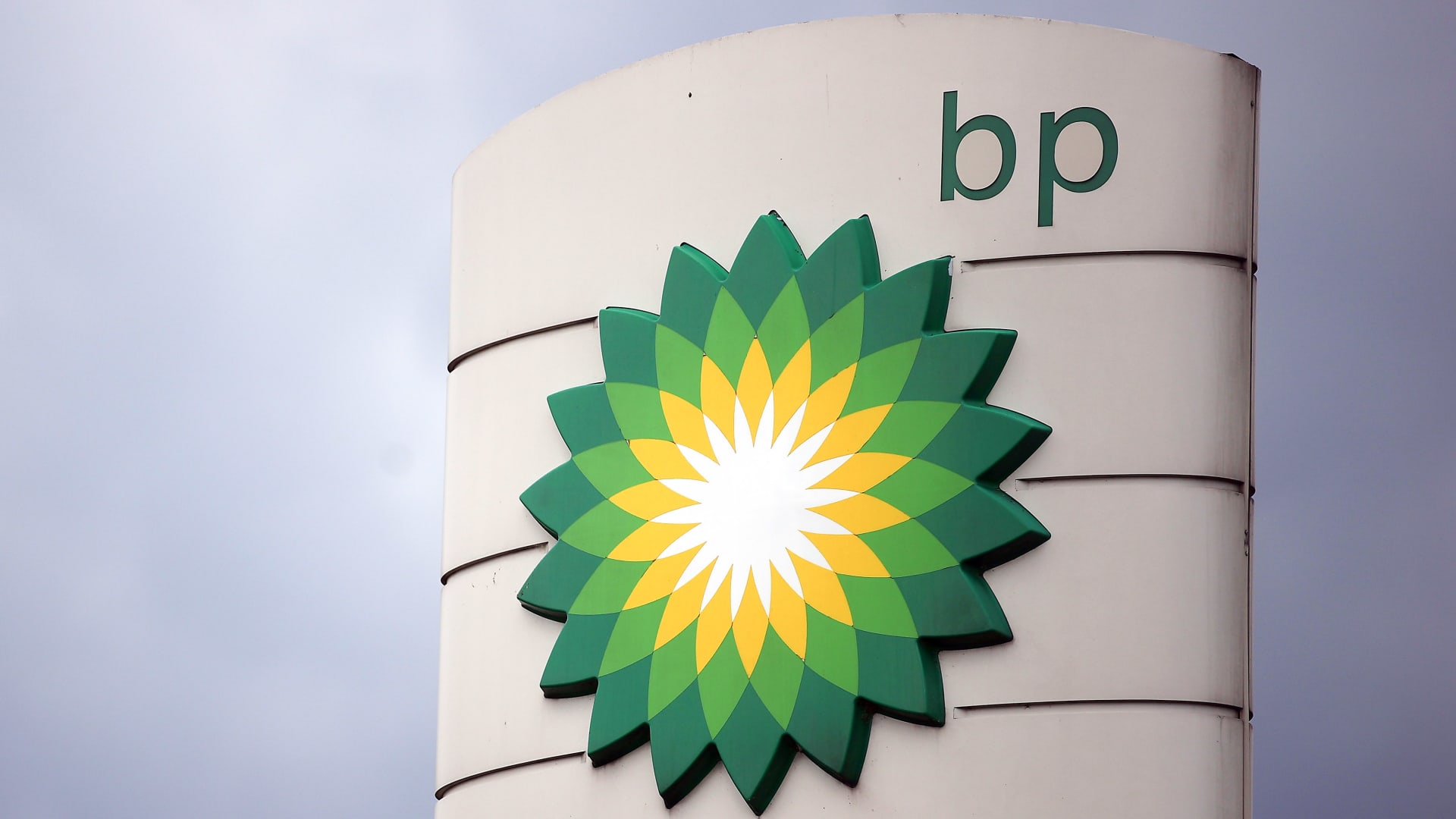Oil major BP boosts dividend as quarterly profits jump on high commodity prices

LONDON — U.K. oil giant BP on Tuesday reported bumper second-quarter profits, benefitting from a surge in commodity prices.
The British energy major posted second-quarter underlying replacement cost profit, used as a proxy for net profit, of $8.5 billion.
That compared with a profit of $6.2 billion in the first three months of the year and $2.8 billion for the second quarter of 2021. Analysts had expected BP to report first-quarter profit of $6.3 billion, according to Refinitiv.
BP also announced Tuesday a 10% increase in its quarterly dividend payout to shareholders, raising it to 6.006 cents per ordinary share.
Shares of BP are up nearly 20% year-to-date.
BP’s results once again underscore the stark contrast between Big Oil’s profit bonanza and those grappling with a deepening cost of living crisis.
The world’s largest oil and gas companies have shattered profit records in recent months, following a surge in commodity prices prompted by Russia’s invasion of Ukraine.
For many fossil fuel firms, the immediate priority appears to be returning cash to shareholders via buyback programs.
Last week, BP’s U.K. rival Shell reported record second-quarter results of $11.5 billion and announced a $6 billion share buyback program, while British Gas owner Centrica reinstated its dividend after a massive increase in first-half profits.
Cost of living crisis
Environmental campaigners and union groups have condemned Big Oil’s surging profits and called on the U.K. government to impose meaningful measures to bring down the cost of rising energy bills.
Last month, a cross-party group of U.K. lawmakers called on the government to increase the level of support to help households pay rising energy bills and outline a nationwide plan to insulate homes.
A price cap on the most widely used consumer energy tariffs is expected to rise by more than 60% in October due to surging gas prices, taking average household yearly dual fuel bills to more than £3,200 ($3,845).
Fuel poverty charity National Energy Action has warned that if this happens, it would push 8.2 million homes — or one-in-three British homes — into energy poverty. Fuel or energy poverty refers to when a household is unable to afford to heat their home to an adequate temperature.
“Clearly not everyone is struggling with the energy crisis,” Sana Yusuf, energy campaigner at Friends of the Earth, said in reaction to Shell and Centrica’s results. “These bumper profits will be greeted with disbelief by the millions of people across the UK who are faced with rocketing energy prices.”
Yusuf called on the U.K. government to impose a tougher windfall tax on energy firms. “The bulk of these profits should be used to insulate our homes and help cash-strapped households pay for their heating this winter, rather than developing more fossil fuel projects that roast the planet,” Yusuf said.
The burning of fossil fuels, such as oil and gas, is the chief driver of the climate crisis and researchers have found fossil fuel production remains “dangerously out of sync” with global climate targets.
Speaking in June, U.N. Secretary-General Antonio Guterres called for an abandonment of fossil fuel finance, describing new funding for fossil fuel exploration as “delusional.”




